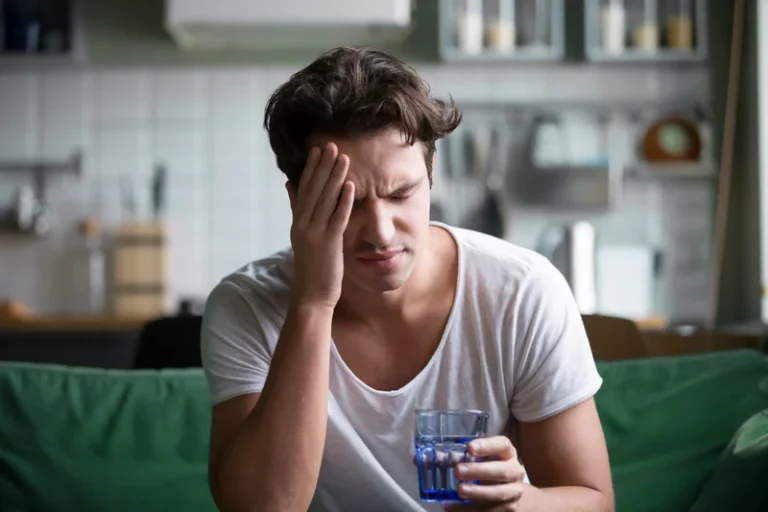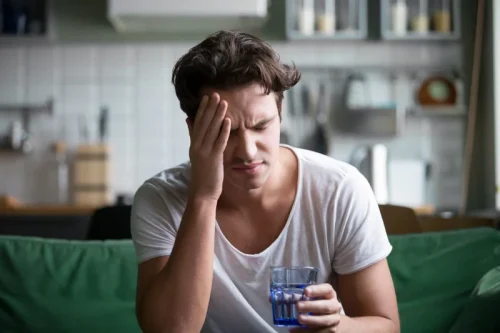
Generally, symptoms may last from a few days to a couple of weeks, with most acute symptoms peaking within the first week. The signs that someone needs alcohol addiction treatment are persistent physical, behavioral, and emotional symptoms that indicate a loss of control over alcohol use. These signs disrupt daily life, relationships, and overall well-being, making professional intervention necessary for recovery.
Day 12
- Only a small percentage (approximately 5%) of individuals undergoing alcohol withdrawal will experience DTs.
- This restlessness may also make it difficult to fall asleep or stay asleep.
- The obstacles you come across during your recovery journey can be challenging, which is why ongoing support and lifestyle changes are so important.
- Over the first few days after you reduce or stop your alcohol intake, you’ll likely experience specific withdrawal symptoms.
- Shorter use often results in milder and briefer symptoms since your body hasn’t had as much time to adjust.
- You might not miss alcohol itself, but you may catch yourself missing the routine of it.
It’s a journey that encompasses both physical recalibration and emotional rediscovery. Alcohol, a central nervous system depressant, impacts the brain’s neurotransmitter balance. Regular alcohol consumption causes the brain to alter its neurotransmitter levels in order to counteract the sedative effects of alcohol. Quitting suddenly (cold turkey) often leads to more intense symptoms compared to gradually tapering off under medical supervision. Consider what support you will need to maintain sobriety post withdrawal. Symptoms of alcohol-related liver disease usually only occur with severe liver damage.
Factors That Influence Alcohol Withdrawal Timeline
All medically related content is reviewed by doctors who specialize in the relevant fields. For an extensive list of recovery programs, we encourage you to explore our main website’s top-ranked rehab facilities or utilize the SAMHSA Treatment Services Directory. Some long-term drinkers can also develop nutritional deficiencies that lead to brain damage. By Buddy TBuddy T is a writer and founding member of the Online Al-Anon Outreach Committee with decades of experience writing about alcoholism. Because he is a member of a support group that stresses the importance of anonymity at the public level, he does not use his photograph or his real name on this website. «I’m back working, my skin’s cleared up, and I’ve cleaned up the mess I’ve made of my life. The sad truth is, I miss drinking, even after all the hell it has caused. But to go back will be my death.»
- After 12 hours, a small percentage of people may experience hallucinations.
- The creators, editors, and contributors of this website are not liable for any purported damage or adverse effect, directly or indirectly, resulting from the information presented on this site.
- For the most part, they are very unpleasant and can make it difficult to quit alcohol use.
- Since alcohol slows brain function and nerve communication, the central nervous system (CNS) adapts.
What Long-Term Lifestyle Changes Are Needed for Alcohol Recovery?
- These symptoms can include seizures, rapid heart rate, hallucinations, and significant confusion.
- While you will still likely have some alcohol cravings, you will probably feel pretty good about quitting alcohol.
- The most effective techniques in alcohol recovery include behavioral therapies like Cognitive Behavioral Therapy (CBT), Dialectical Behavior Therapy (DBT), and Motivational Interviewing (MI).
You don’t have to take this journey alone; we are here to help you through each step of the way. Contact us today to learn how you can gain lasting freedom from alcohol. The peak of withdrawal often occurs after about 48–72 hours after your last drink. At this point, all symptoms that are going to happen will be present and will be at their worst. The most dangerous symptoms that can develop will do so as symptoms peak. Seizures can occur, and an uncommon but dangerous condition called delirium tremens can happen at this point in withdrawal.


Alcohol withdrawal happens when the body, which has become used to regular alcohol intake, struggles to adjust after drinking suddenly stops. Over time, alcohol affects the brain’s neurotransmitters, especially gamma-aminobutyric acid (GABA), which helps calm the nervous system. Alcohol suppresses glutamate and enhances GABA, making the body more relaxed. You may find that the symptoms progress rapidly and peak within around 48 hours.

We offer various treatment programs designed to aid in your recovery, and can discuss options for both inpatient and outpatient support depending on your needs. For those struggling with alcohol Substance abuse addiction treatment, we are here to help. There are certain factors that may increase the risk of acute withdrawal symptoms like seizures and DTs.
- The results revealed that 40% of participants experienced withdrawal symptoms lasting over 2 years, and 80% were moderately to severely affected.
- «Lightheaded, dizzy, no sleep, pale, weak, and it feels like electric shocks shoot through my body every so often. Crazy anxiety.»
- Alcohol withdrawal can be difficult and sometimes dangerous but it is possible to overcome it with the right help.
- If it is a mild fatty liver disease, then you can expect recovery in two weeks but for severe liver inflammation, it can take months to get back to normal.
- Kindling may also occur if you experience multiple episodes of alcohol withdrawal.
This restlessness may also make it difficult cutting back on alcohol symptoms to fall asleep or stay asleep. Alcohol withdrawal is a common part of recovering from alcohol addiction. Getting involved in your community and finding external support during and after alcohol withdrawal treatment can make a huge difference in long-term recovery. Barbiturates and sedatives are also sometimes used to treat symptoms like alcohol withdrawal seizures or DT. Alice is a board-certified Family Nurse Practitioner and Addiction Registered Nurse – Advanced Practice. She earned her Bachelor of Science in Nursing from the University of Louisiana at Lafayette and her Master of Science in Nursing from Loyola University New Orleans.

Aún no hay comentarios, ¡añada su voz abajo!